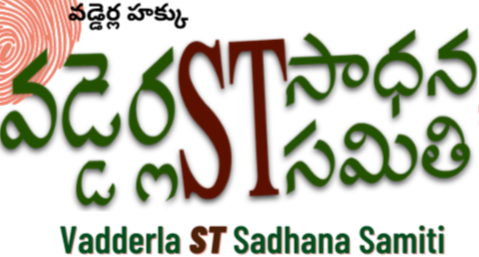Talk on Telugu Vadder Problems and their ST Demand By Dr. OSK Raju
గమనిక: ముందుగా ఈ విషయానికి సంబంధించిన PDF లు/ డాక్యుమెంట్లు డౌన్లోడ్ చేసుకోండి. వీటిని పూర్తిగా పరిశీలిస్తే ఈ కంటెంట్ పై పూర్తి అవగాహన వస్తుంది
| ఫైలు | సైజు |
|---|---|
| Plight_Of_Telugu_Vadders_Talk_By_DrOSKRaju_Mysuru_University.pdf (1.28 మెబై) | 1.28 మెబై |
Centre for Study of Social Exclusion and Inclusive Policy, Humanities Block, Manasagangothri, University of Mysore, (UoM) is organising two-day national seminar on August 1 and 2 of 2019 at its premises to mark World Indigenous People’s Day
As per the National Commission for de-notified, Nomadic and Semi Nomadic tribes there are 1500 Nomadic / Semi-Nomadic Tribes and around 150 de-notified tribes, which make about 11 crore of India’s population. These communities are hard to reach, less visible, and therefore frequently left out. They have been culturally, historically, politically and economically deprived.
Hence to address the issues related to these communities there is a need for special attention.
Objectives: To reveal the past culture and customs of the nomadic and semi nomadic tribes by examining chronological documents as well as other sources of information on their lives and history; To find out the historical origin of various nomadic and semi nomadic tribes groups that exists today and merged with other major tribal groups; To reassess pre-colonial debates in deconstructing and reconstructing a vision of development that ensure to meet universal needs of survival, justice and human dignity of sustainable social transformation of nomadic and semi nomadic tribes groups; The find out the role of politics, social movements, community involvement, and civil society and their engagements with combating social exclusion of nomadic and semi nomadic tribes groups in India
Sub themes; History of origin of NT(nomadic groups) and semi nomadic/DNT in India/Karnataka ; Ethno historical identification of DNT /NTgroups (both existing and sub-merged); Socio-economic, political and legal status of DNT/NT groups during British period; Tracing the developmental history of nomadic and semi nomadic groups ; Social exclusion of DNTs/NT and measure for inclusion Issues of DNTs /NTs focusing Karnataka /South India
